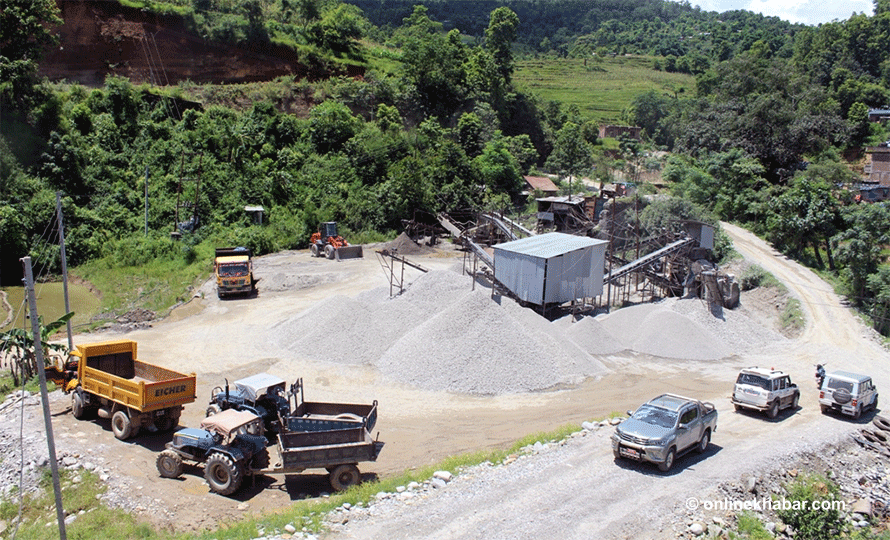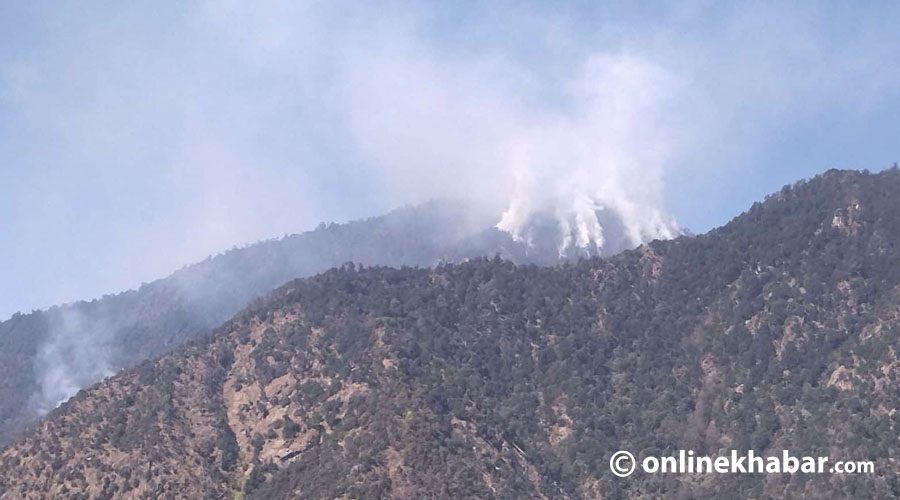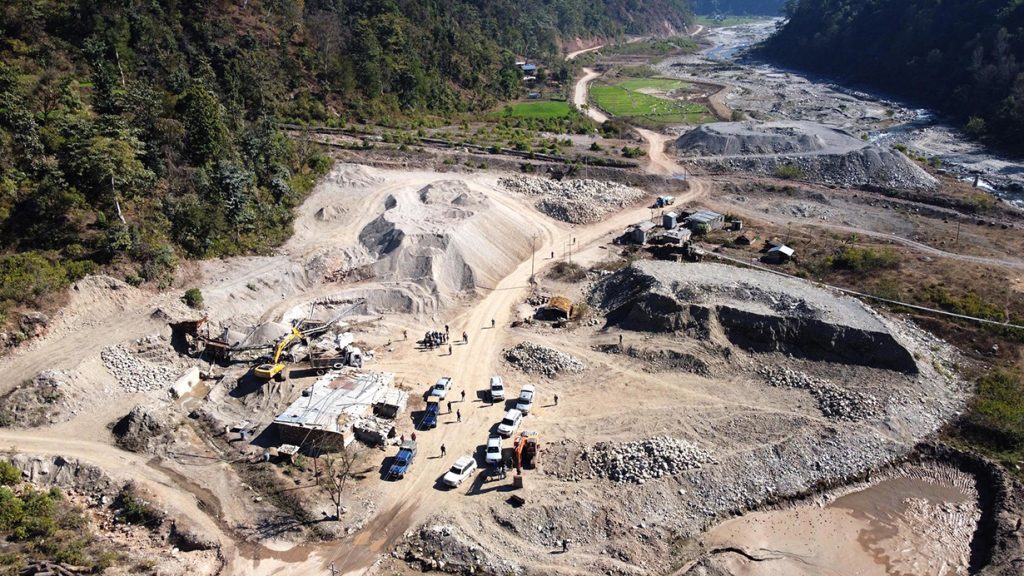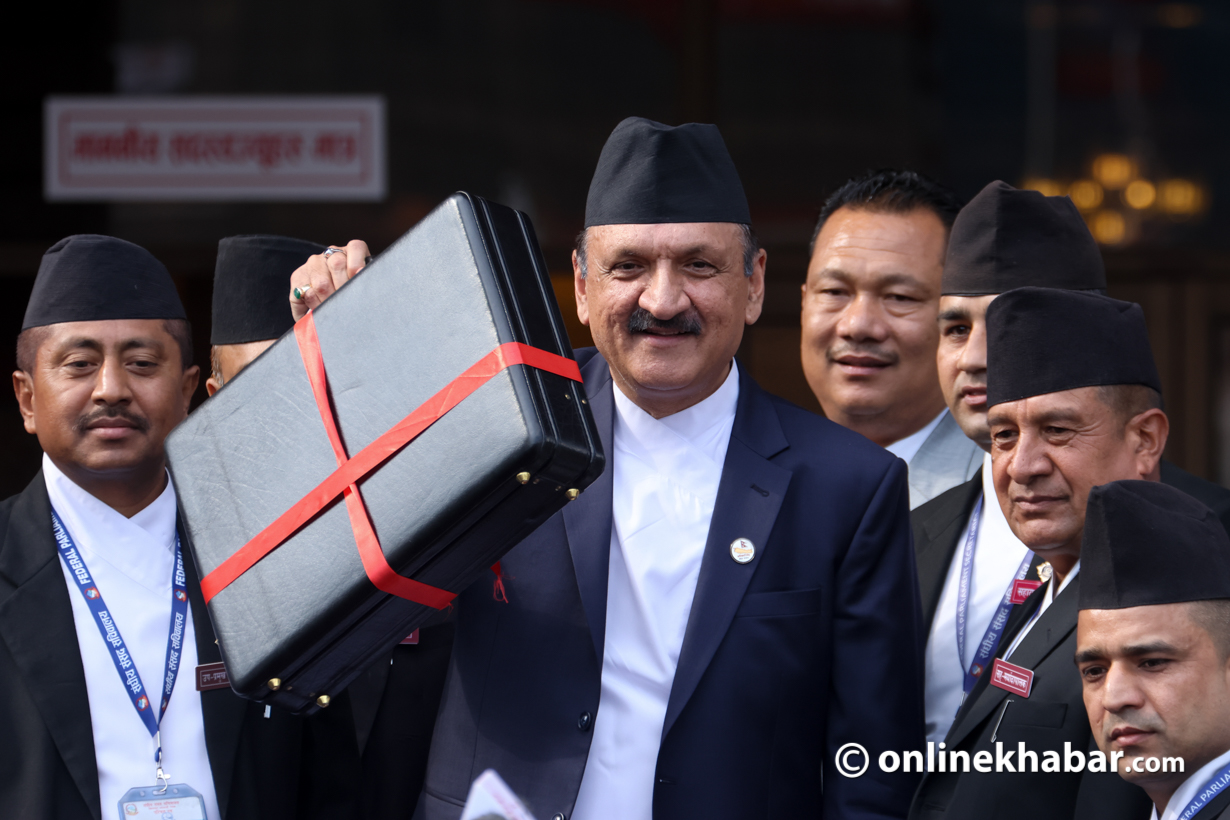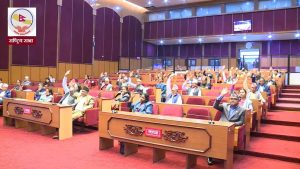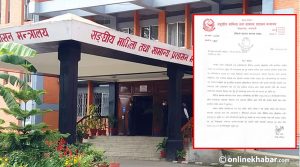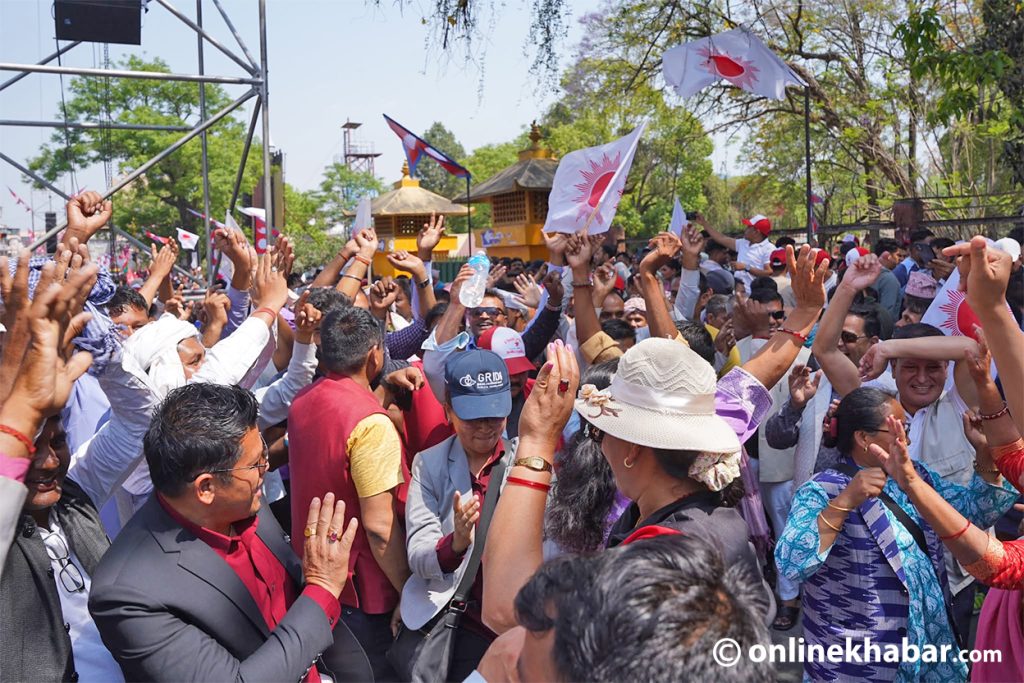Nepal’s trade deficit at the end of the first nine months of the fiscal year 2020/21 stood at Rs 1.01 trillion, rising by 12.49 per cent from the previous year. The deficit has been rising every year despite the government trying its best.
But, on Saturday, Finance Minister Bishnu Paudel announced yet another ambitious yet controversial plan to reduce the trade deficit.
While announcing the budget for the fiscal year 2021/22, he announced that the government, in a bid to reduce the trade deficit, would export rock, gravel, sand and other aggregates to neighbouring countries. Whereas the government has been denying, stakeholders argue the excavation of these items would be done primarily in the Chure range as the government also said it would be constructing a ropeway along with the range to a depot.
The decision has been criticised widely by both opposition parties and environmentalists who say that doing so would cause unimaginable environmental degradation, leading to water shortages and habitat loss.
Although the government says it has not deviated from its responsibility of environmental conservation, why is not everyone happy with the decision?
Here, we explain.
What was announced in the budget?
Finance Minister Paudel stated that to reduce trade deficits, Nepal would export mineral-based construction materials such as stones, pebbles and sand from the country as per environmental impact assessments. He further stated that the government would also grant customs duty waiver on construction materials for the ropeway connecting the mines to a depot.
Why is the controversy?
The government, after excessive exploitation of the Chure’s rivers and hills, had decided to halt the export of construction materials like sand and gravel. The Chure range, shaped like a hedge, consists of hills up to 1,220 metres running east-west across the country. It occupies about 12 per cent of the country’s total area. These hills are sporadically forested.
The region had been bearing the brunt of relentless mining of sand, pebbles and boulders from its rivers and hills and their export to India which, according to experts, has caused natural disasters like floods and landslides.
Even though there has been a ban on mining in the region, activists say that the collection of construction material is still happening in the area. There has been a lot of deforestation in the area as people have used the hill to earn money by selling land, timber and mining boulders and gravels.
Hence, many people fear the government reopening the export would lead the region’s ecological balance from bad to worse.
Why the protest?

The main concern of people is damage to the environment which they believe will be detrimental to villages in the Terai as there will definitely be lasting impacts on the region. Environmentalists claim that if people are allowed to mine in the Chure lawfully, it would cause unimaginable degradation to the environment. Environmentalist Bijaya Kumar Singh tells The Record that it will lead to water shortages in the region as well as habitat loss.
Others say that the government should be careful as these are non-renewable resources that take thousands of years to form again. People are also arguing if the decision to export materials is correct when Nepal itself will be needed these materials in various project like railways, highways, and bridges.
Another reason people are criticising the government is that the decision has been made without doing a proper environmental assessment. Even though Paudel said the government would be doing it after an EIA was performed, various activists and environmentalists say that the EIAs are merely a formality as this project will be done regardless.
What does the government say?

The Environment Ministry has told The Kathmandu Post that it is not aware of such a decision being made. Officials of the ministry were shocked to learn that the ban on mining was being lifted by the government. They released a statement on Wednesday stating it was a policy-level decision made by the government and that as the protector of the environment, the ministry would do everything in its power to ensure that all rules and laws were followed while doing the EIA.
The Finance Ministry says exports will only open once the EIA is done adding that a mechanism will be put in place to ensure environmental protection. In a statement released on Wednesday, the ministry said that the government was committed to protecting and promoting the Chure region.
It further stated that it would only be mining in areas deemed safe by the Department of Mines and would excavate areas other than Chure and Bhawar regions. The statement said that river systems would also be left safe.
But, activists say the statement is meaningless as the ordinance consisting of the entire budget statement needs to be changed.
Meanwhile, Paudel has remained silent on the issue.
Is the issue being politicised?
Along with environmentalists and activists, politicians have also been using this opportunity to criticise the government. Apart from Prime Minister KP Sharma Oli’s CPN-UML party and his aides along with Mahantha Thakur and his aides, everyone from the opposition has criticised the government. They seem to have found a common ground to attack.
Influential Nepali Congress leader Gagan Thapa said that such controversial things would never have been passed had the House of Representative not been dissolved. Thapa, who was a part of the parliamentary Natural Resources Committee that recommended the ban on the export of these materials, said that the government could not lift the ban without conducting proper studies or discussion. He called the move obscene and regressive.
Nepali Congress President Sher Bahadur Deuba also took the chance to criticise the government stating that government was trying to kill its own people by playing a major role in destruction of the Chure region.
Upendra Yadav of the divided Janata Samajbadi Party Nepal also spoke up in the issue on Wednesday stating that this decision would have a lasting impact on the Terai region. In a statement, he said that apart from having a negative impact on the environment, lots of people especially from the Terai would suffer gravely due to such a decision.
CPN-Maoist Centre Chairman Pushpa Kamal Dahal went on to say that this was a government ploy to gain more ‘powerful friends’ and save the government even at the cost of the environment and asked the government to withdraw such a controversial ordinance.
What do experts say?
Apart from the government, everyone is against it. The Nepal Forum of Environmental Journalists (NEFEJ) in a statement said that such a policy would ruin the Chure region which had already suffered a lot in the past few decades.
Former finance secretary Rameshore Khanal says that Nepal’s politicians only look at immediate gains which could be detrimental to Nepal’s ecology.
Nagdev Yadav of the Community Development and Advocacy Forum in Province 2 says that the government with such a policy was aiming to turn Terai into a desert. He says industrialists who have been doing this anyway will be more powerful and will do everything they can to demolish the Chure region altogether as no one will able to regulate it.
He says that even if the government plans to lift the ban, it needs to monitor what is being done in these regions strictly. If not, he calls this a recipe for disaster.
Environmentalist Binod Gupta says that water sources in various areas along the Chure range have dried up due to deforestation and the excavation of river systems. He says that people are finding it difficult to find water even when they dig as deep as 200 feet. Gupta further says that the decision to export these raw materials while the people in the country suffered was disgraceful.
Surendra Labh, a professor of economics at the Tribhuvan University, says that contractors cannot be trusted when it comes to excavation in the region. He says that local governments have been giving permission to contractors to extract whatever they need in areas like Chure and they have been doing as they please without taking into consideration if it is right or wrong.



